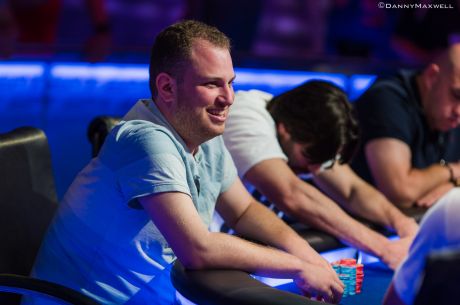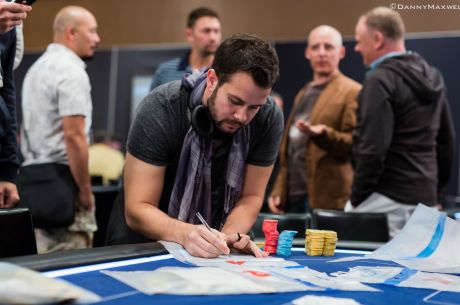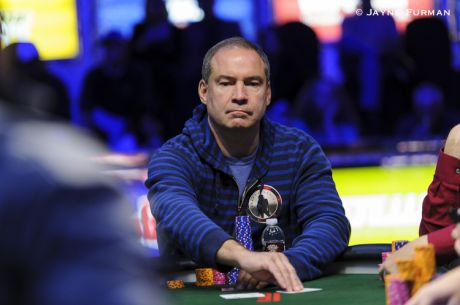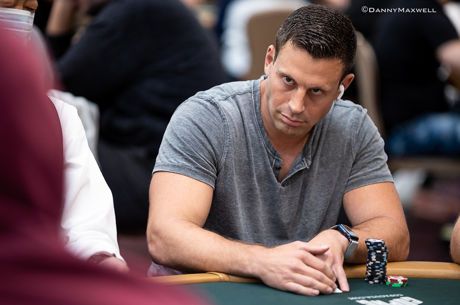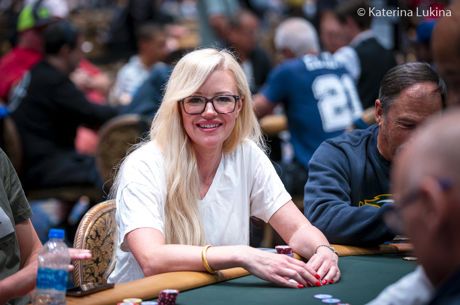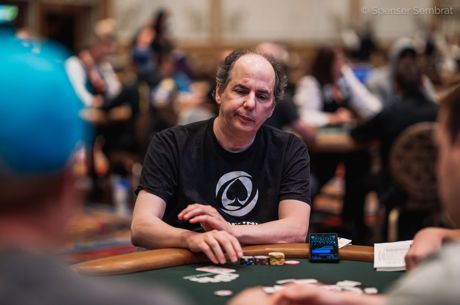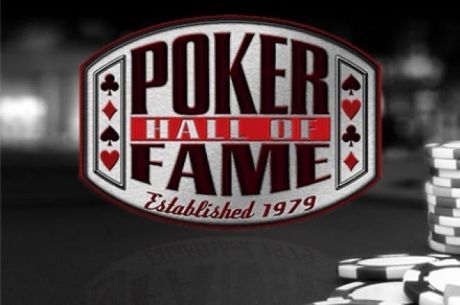Five Thoughts: Kevin "Phwap" Boudreau Returns to Poker, Ultimate Gaming Closes and More

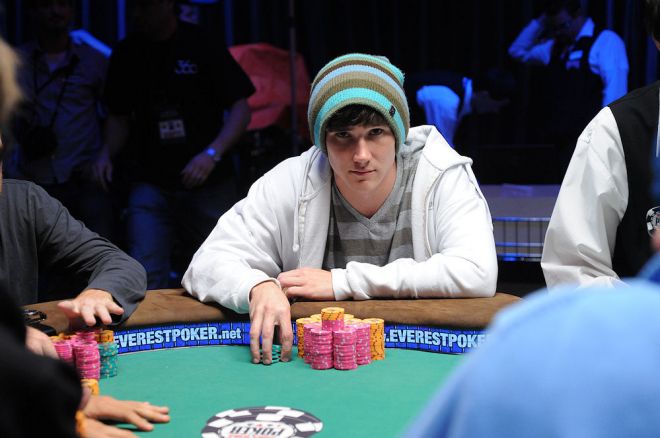
While the poker world was debating whether or not Phil Hellmuth is a good ambassador for the game, or if poker will thrive with representatives like Dan Colman, in an attempt to impossibly quantify what’s “good for the game,” the 2014 Mid-States Poker Tour kicked off one of their biggest events in history at Golden Gates Casino in Black Hawk, Colorado.
Among the 500 entrants was Kevin “Phwap” Boudreau from nearby Colorado Springs, who was playing in his first poker tournament since he was hospitalized due to severe medical conditions suffered during the World Series of Poker in 2013. Boudreau, a high-stakes cash-game player, WSOP runner-up, and a member of the famed Ship It Holla Ballas crew, suddenly collapsed that summer with sudden bleeding to the brain and was placed in an induced coma.
The condition, cerebral arteriovenous malformation (AVM), is an abnormal connection between arteries and veins. Generally unresponsive and unable to breathe on his own for long intervals of time, Boudreau was placed in acute care. Word spread quickly throughout the poker community, and when Boudreau’s family established the “Kevin ‘Phwap’ Boudreau — Recovery Fundraiser,” friends, family members, and players were quick to donate to the cause.
The original goal was to raise $50,000, a number that was cleared by $15,000.
In July of 2013, Boudreau started to improve. He fought off pneumonia, his arms and legs started reacting to pain stimulus, and he began responding to verbal commands. At the end of July, he was taken off the ventilator, voluntarily moving his extremities, and was spending more time awake each day.
By August, Boudreau was communicating with an iPad. In October, he was stretching, standing, and passively walking. By December, Boudreau was home with his parents in Colorado, eating solid foods and working hard to improve his strength.
A few months ago, at the 2014 WSOP, Boudreau returned to Las Vegas with his father Jim. One June 14, the one-year anniversary of the day he collapsed, Boudreau played in a sit-n-go at the Rio with his father and friends Peter Jetten, Justin Bonomo, and others. Boudreau was eliminated in third place and his father was the winner.
Boudreau and his father were only in Vegas for a few days, and when asked about a longer poker trip in the future, Boudreau's face lit up. He made a deal with his father that day that if he won the sit-n-go he could play in a multi-table tournament (MTT), but unfortunately he was forced to wait to test his MTT prowess.
That test came at MSPT Golden Gates, and Boudreau passed with flying colors.
1. Phwap Returns
There were a stream of tweets on my timeline when Boudreau was spotted on Day 1c of MSPT Golden Gates, the first poker tournament he’s played since his traumatic incident. The social media support amplified when Boudreau ascended to second in chips on the final day with 26 players remaining, and then it went bonkers when he made the final table.
Kevin is crushing it, 5 left and he is the chip leader @kevinphwap Picks Off Yazdi's Massive Bluff http://t.co/qckgyU754p via @PokerNews
— Peter Jetten (@PeterJetten)
phwap big chipleader after sniffing the peanut and calling it off w/ 77 on 665c-4c-Qc and picking off the JT bluff. 5 left #toughness
— subcomandante brian (@snagglechud)
This @KevinPhwap performance is one of the greatest stories in the history of the game. GOGOGO!
— JC Alvarado (@JCAlvarado1)
Holy sheeite congrats to @KevinPhwap on an amazing tourney. Welcome back!
— Vanessa Selbst (@VanessaSelbst)
Results don't make the story, people do. And @KevinPhwap proves that. A true inspiration that I take strength from.
— Scott Seiver (@scott_seiver)
Gogogo @KevinPhwap. What a sick showing in his first tourney since the AVM. So much toughness #PhwapPhwapPhwap
— Tom Dwan (@TomDwan)
The story didn't end perfectly — Boudreau busted in fourth place after having his 9x9x cracked by Reza Yazdi's 8x8x for 80 percent of the chips in play — but what a hell of a ride it was. There are few moments when the poker community stands together in support of something, especially notable figures like Tom Dwan, Vanessa Selbst, and others, but last Sunday the majority of tweets filling my timeline were in support of Mr. Boudreau.
What an inspiration, and, like Seiver said, the result doesn't change anything. Win or lose it was amazing to see Boudreau able to compete again and do something that he loves. Poker isn't just about who is crushing the super high roller events or who has the most bracelets. Most of us will never have an opportunity to compete at the highest level, much less win one of poker's most coveted prizes, but we will always be able to play and enjoy the game. That's a wonderful thought.
Best wishes to Boudreau as he becomes stronger and stronger each day. Keep enjoying SportsCenter, and I'm certain we will see you back on the felt in the not-so-distant future.
2. Ultimate Gaming Closes
In September, after the Trump Taj Mahal announced that it would close in mid-November, Ultimate Gaming exited the New Jersey online gambling market. New Jersey law requires gaming providers to partner with land-based casinos, and without Trump, Ultimate was forced to move on from the Garden State.
Not long after this announcement, Ultimate cut several pros on their roster, including Brent Hanks, William Reynolds, Phil Collins, Jeremy Ausmus, and Jason Somerville.
“I had heard towards the end of September that there was a bit of a mass exodus,” Somerville told PokerNews. “(I) was prepared for them to cut me, but it all happened rather suddenly around the halfway point of the Run It Up season.”
The mass exodus continued (or concluded?) on Friday, when Ultimate Gaming announced that they are ceasing operations in Nevada effective immediately. Just like that, less than two years into the experiment, the first legal, regulated online poker company in the United States was gone.
Despite spending the last two summers in Las Vegas, I never had an opportunity to play on Ultimate Poker. That’s not because I wasn’t interested — I played on WSOP.com a bit — rather it was because the software wasn’t Mac compatible. Yes, there are programs that allow you to use PC-only software on your Mac, but doesn’t that defeat the purpose of owning a Mac? I went to the dark side in an effort to avoid all things PC.
Beyond my personal technological snobbery, there were several other issues with Ultimate. First, both the New Jersey Division of Gaming Enforcement and the Nevada Gaming Commission are both learning on the fly. We’re all very green when it comes to regulated gaming in the U.S., so the processes are a bit out of whack and all of the timelines are extended. For a site like PokerStars, adjusting the blind structure in an online tournament might take a matter of minutes. For regulated sites in Nevada and New Jersey, to steal a phrase from Lee Corso, not so fast my friend.
Regulators, mount up.
In a rush to be first, Ultimate Gaming didn’t necessarily come storming out of the gate either. Without a large, recognizable brand like partypoker or the WSOP backing them, they entered the market needing to spark interest from everyday players that had never heard of them. If anything, the word “Ultimate” may have been a detriment because customers may have associated them with Ultimate Bet, even though the two are separated entirely.
The state-by-state process of legalization and regulation is brutal, and surely stunted Ultimate Gaming’s ability to grow. As we’ve mentioned before, Nevada ranks 35th in population in the U.S. Once Ultimate was forced out of New Jersey (11th in population), the company’s potential market share in America plummeted. Unless we go perfect-perfect on the turn and river, the prospects of federal legislation are still very grim in the near future. The intrastate model, while frustrating, will have to continue.
Worst of all, good people lost jobs last week when Ultimate suddenly closed. That’s never good news, much less two weeks before Thanksgiving, and here’s to hoping they all land on their feet soon.
3. Jacobson Appears on CNBC
Last Friday, following his victory in the WSOP Main Event, Martin Jacobson joined Scott Wapner to discuss the win on CNBC. The interview was a bit rough — it seemed like Jacobson was hearing Wapner on a delay through his IFB — and instead of extending an olive branch to the champ, Wapner became a bit condescending.
At the end of the interview, Wapner jokingly asked if Jacobson was going to invest his winnings, and instead of listening for a response he snickered with his highfalutin colleagues in studio.
Cool story, bro.
This was a lose-lose scenario, unfortunately, as are many mainstream poker interviews. I’m assuming Wapner and company had never heard of Jacobson before they entered their production meeting that morning. Scanning their rundown sheet they saw a three-minute block on poker, and went from there. Wapner seemed to understand poker, asking Jacobson to explain to the viewers what the five community cards were and using the word “flop,” but two minutes and 49 seconds is hardly enough time to explain the rules of no-limit Texas hold’em.
I understand that Wapner was frustrated. It wasn’t a great segment and he needs to keep his show interesting. But there are other alternatives than being an ass and mocking your guest on air. Despite struggling a bit, I thought Jacobson’s response to the location of the bracelet was brilliant.
There’s also the discomforts associated with being on live television, answering questions from someone who doesn’t know that much about poker, and dealing with the IFB. As someone who has had that little bugger in my ear, it can be a bit hectic. There can also be issues with feedback and delay, so we can’t be certain if Jacobson was hearing the questions in real time.
Jacobson seems committed to his role as a poker ambassador, tweeting the following before his appearance:
Excited over the opportunity to promote poker as the sport it is. Look for me tomorrow morning live on @CNBC 9 AM PT
— Martin Jacobson (@Martin_Jacobson)
I’m confident that a man as bright as him will be just fine on television and radio hits going forward.
4. The End Boss
A few weeks ago at WPT Caribbean in wonderful Sint Maarten, Darren Elias made World Poker Tour history. The “End Boss” captured his second consecutive WPT Main Event title — Elias won the WPT Borgata Poker Open in September — becoming the first player to ever win back-to-back WPT events in the same season. Elias earned $127,680, defeating Christophe Rosso heads up, and now has over $2.7 million in career live earnings.
If you recall, Marvin Rettenmaier took down the Season X WPT World Championship and then kicked off Season XI with a victory in the WPT Merit Cyprus Classic, winning bookending events. Daniel Negreanu and Tuan Le were the last two players who won two events in the same season, both championing events in Season III.
Elias is a quiet beast, saying very little at the table and always raking tons of pots. You will normally find him in his North Face jacket, a pair of basketball shorts, and sandals, silently slaying everyone he’s competing against. I had the luxury of playing a few hands with him in an event at PARX in 2013, and it was absolutely terrifying. I can only imagine what other amateurs feel like when they’re playing a big buy-in event for the first time, and they look across the table at Elias. Many don’t know who he is, but after a few orbits you learn that you can’t mess with him and he has ice water flowing through his veins.
I remember when we grabbed him for the PokerNews Podcast at the Season XI WPT Grand Prix de Paris. Elias had just won the WCOOP High Roller the day before, which you can’t do in France because they aren’t allowed to play on the dot-com client. So, Mr. Elias shipped the event and over half a million dollars, and the first thing he did was hop on a train or a plain — I can’t recall which — to hop into the event. Elias is a true grinder who is always looking for value, and came off a bit sheepish when we tried to pump him up for his successes.
This brings me back to the Hellmuth-Colman debacle briefly. We never like the players who win and make sure you know that they win, but when the quiet guys crush and give us no reactions we’re equally upset. I am guilty of the latter, wanting a little bit of emotion from people when they succeed, but some people just want to cross the goal line and toss the ball to the referee.
Maybe we should start calling Elias “Barry Sanders” in place of “End Boss.”
5. Silver Spins Gold
In an op-ed published in the New York Times, NBA Commission Adam Silver called for Federally legalized and regulated sports betting.
“The laws on sports betting should be changed,” wrote Silver, who succeeded David Stern as Commissioner in February. “Congress should adopt a federal framework that allows states to authorize betting on professional sports, subject to strict regulatory requirements and technological safeguards.”
Silver’s stance is a departure from what we’ve traditionally heard from front offices in the four major American sports. The NBA was recently hit with a sports-betting scandal when referee Tim Donaghy admitted to betting on games he officiated while providing tips to others from 2005-2007, and there are several other tales of point shaving and match fixing, including the infamous 1919 World Series.
Other commissioners have been afraid to confront sports gambling, even though they know that betting drives their product. It’s no secret that the explosive success of the NFL has correlated directly with the increased popularity of fantasy football. The leagues have begun flirting with daily fantasy sports, working directly with companies like DraftKings, but Silver is the first person to single out the elephant in the room.
While actions speak louder than words, this is an important first step towards a necessary conversation about federally regulated gaming in the U.S. Poker, a game of skill, might be able to piggyback off of any traction that Silver and the NBA make with Congress, and skip the intrastate model that is currently suffocating online poker in this country.
This is definitely a story worth monitoring if you’re interested in the growth of gaming in the U.S., and Silver, the head of a very powerful league, is a very good ally to have in the fight.
Get all the latest PokerNews updates on your social media outlets. Follow us on Twitter and find us on both Facebook and Google+!

